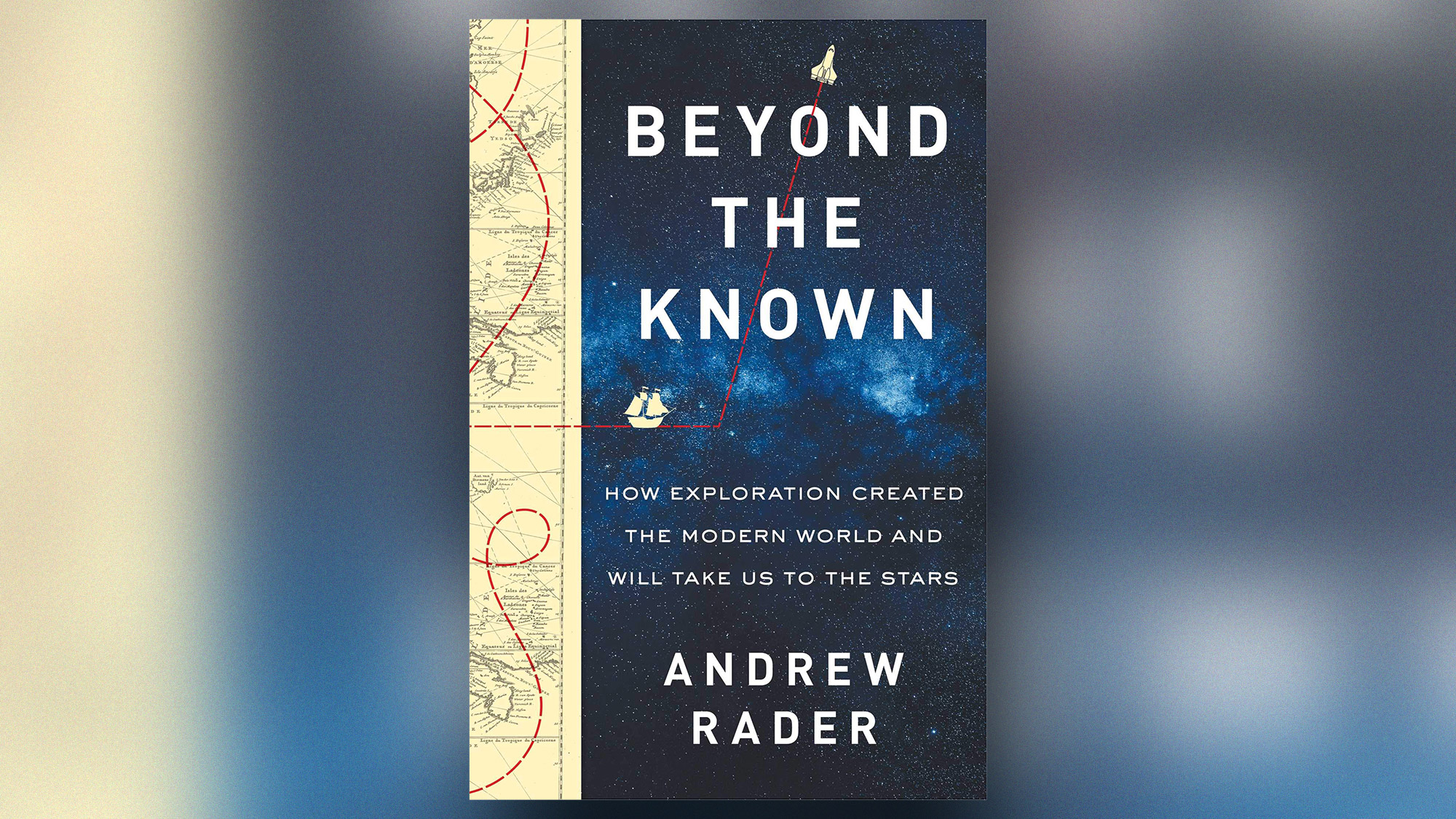'Beyond the Known' Reveals Exploration's Role in Human History (and Our Future)
The complex history of humanity's exploration helped forge our urge to head out to space, argues a new book.
Andrew Rader's latest book, "Beyond the Known: How Exploration Created the Modern World and Will Take Us to the Stars" (Scribner, 2019) has been released today (Nov. 12). Rader is a mission manager for a large aerospace company, and holds a Ph.D. in aerospace engineering from the Massachusetts Institute of Technology.
The scientist acknowledged in an interview with Space.com that many accounts of exploration are Eurocentric, portraying brave explorers traveling to unknown countries and forging the way for settlers that followed. But Rader attempts to break that narrative by also talking about the people who lived in some of the colonized areas before the Europeans did, including North America, Asia and Australia, to show that exploration has many facets — positive and negative.
Related: Best Spaceflight and Space History Books
For example, explorers and settlers coming from Europe to the United States brought sicknesses and diseases with them. The Native Americans already living in America at that time had no natural immunity, and there was no such thing as immunization shot in the 1500s, 1600s and 1700s. Untold thousands of Native Americans died post-colonization due to diseases and other factors, such as warfare and other conflicts between their nations and the incoming Europeans.
"The world is more connected than we realize," Rader said. The displacement of peoples already living in the United States pre-colonization is more widely discussed these days than it was a few decades ago, but other stories are still not receiving much attention. For example, there is evidence of some indigenous people who lived in northern Canada, who originally came from Siberia via a land-bridge between the continents. So, there was exploration in North America even before the Europeans arrived.
Rader argues that human ability to explore is due to adaptability. "Our technology allowed us to spread throughout the planet," he said, adding, "exploration has been one of the primary driving forces in human progression." Through trading, for example, the Europeans were able to obtain ideas and books from Asia that helped to drive the Renaissance and the scientific revolutions.
Breaking space news, the latest updates on rocket launches, skywatching events and more!
And although all this exploration occurred centuries ago, Rader said that there are lessons learned for moving out across the cosmos. Several countries and organizations have proposed establishing settlements on Mars, for example, but the Red Planet is a several-months journey from Earth. Engineers will have to set up a supply network to ferry goods and people to Mars, just like the trans-Atlantic and trans-Pacific airliners and ships that serve the same function on Earth today.
But how can hopeful Mars settlers set up an economy where there is none? "It's the chicken and the egg problem," Rader said. "You do what you can with what you have." When Europeans came to North America, for example, it was out of hopes of finding precious elements, such as gold. While that didn't work out as planned, the Europeans did find other resources, such as furs and food that were not available in their own countries. And when the European population found uses for those foods and the fur, demand drove a new economy.
It's possible that such a situation could be similar to exploring the moon or Mars, but the reasons people may want to settle there are harder to predict, Rader said. But one thing that we can learn from directly is, for example, the ships that evolved with the market needs, he said. Columbus' famous voyage to the New World, for example, included simple and small vessels that were "unsuited for the Atlantic," Rader said, while settlers who came after him tended to come over on larger ships that had more goods and more capability to sail farther. "Technology followed purpose, and not the other way around," Rader said.
Rader suggests that for space, a good way to explore farther out in the solar system may be to establish incentives with "bare-bones technology" and then to build on that, depending on what the market desires. He said that he hopes humanity takes that option, as opposed to turning inward — to virtual reality or more distracting pleasures, such as the drug use portrayed in Aldous Huxley's novel "Brave New World" (Chatto & Windus, 1932).
"Do we really have this future of exploration? It's important to understand it's not guaranteed," he said. "We have to do what we can, with what we have, and take sensible risks to succeed."
- 'Rocket Science' Book Launches Kids Through Fundamentals of Space
- 'Europa Excursion' Takes Kids on a Journey to Jupiter's Icy Moon
- Best Space Books and Sci-Fi for 2019
Follow Elizabeth Howell on Twitter @howellspace. Follow us on Twitter @Spacedotcom and on Facebook.

Elizabeth Howell (she/her), Ph.D., was a staff writer in the spaceflight channel between 2022 and 2024 specializing in Canadian space news. She was contributing writer for Space.com for 10 years from 2012 to 2024. Elizabeth's reporting includes multiple exclusives with the White House, leading world coverage about a lost-and-found space tomato on the International Space Station, witnessing five human spaceflight launches on two continents, flying parabolic, working inside a spacesuit, and participating in a simulated Mars mission. Her latest book, "Why Am I Taller?" (ECW Press, 2022) is co-written with astronaut Dave Williams.

